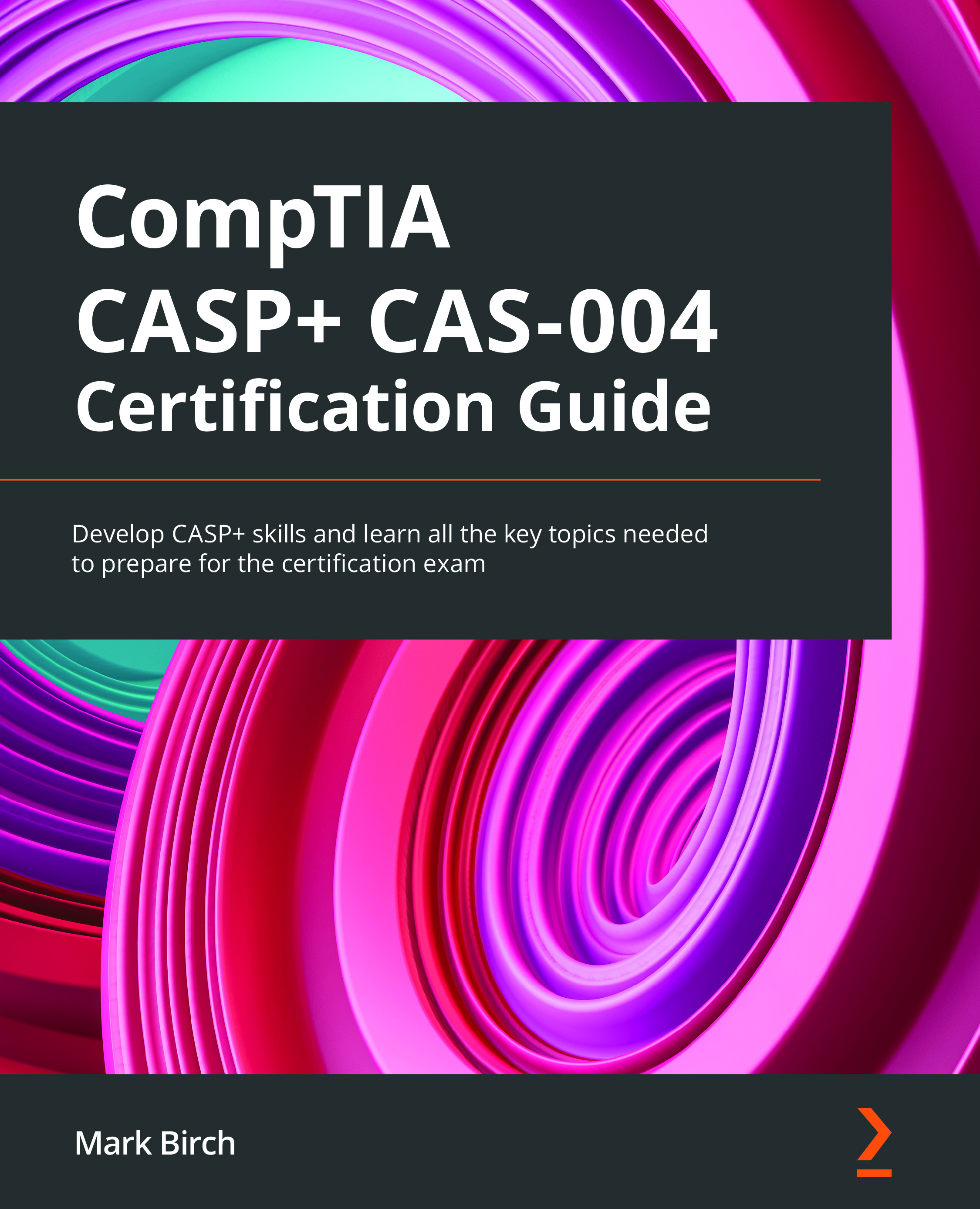Overview of this book
CompTIA Advanced Security Practitioner (CASP+) ensures that security practitioners stay on top of the ever-changing security landscape. The CompTIA CASP+ CAS-004 Certification Guide offers complete, up-to-date coverage of the CompTIA CAS-004 exam so you can take it with confidence, fully equipped to pass on the first attempt.
Written in a clear, succinct way with self-assessment questions, exam tips, and mock exams with detailed explanations, this book covers security architecture, security operations, security engineering, cryptography, governance, risk, and compliance. You'll begin by developing the skills to architect, engineer, integrate, and implement secure solutions across complex environments to support a resilient enterprise. Moving on, you'll discover how to monitor and detect security incidents, implement incident response, and use automation to proactively support ongoing security operations. The book also shows you how to apply security practices in the cloud, on-premises, to endpoints, and to mobile infrastructure. Finally, you'll understand the impact of governance, risk, and compliance requirements throughout the enterprise.
By the end of this CASP study guide, you'll have covered everything you need to pass the CompTIA CASP+ CAS-004 certification exam and have a handy reference guide.



 Free Chapter
Free Chapter

